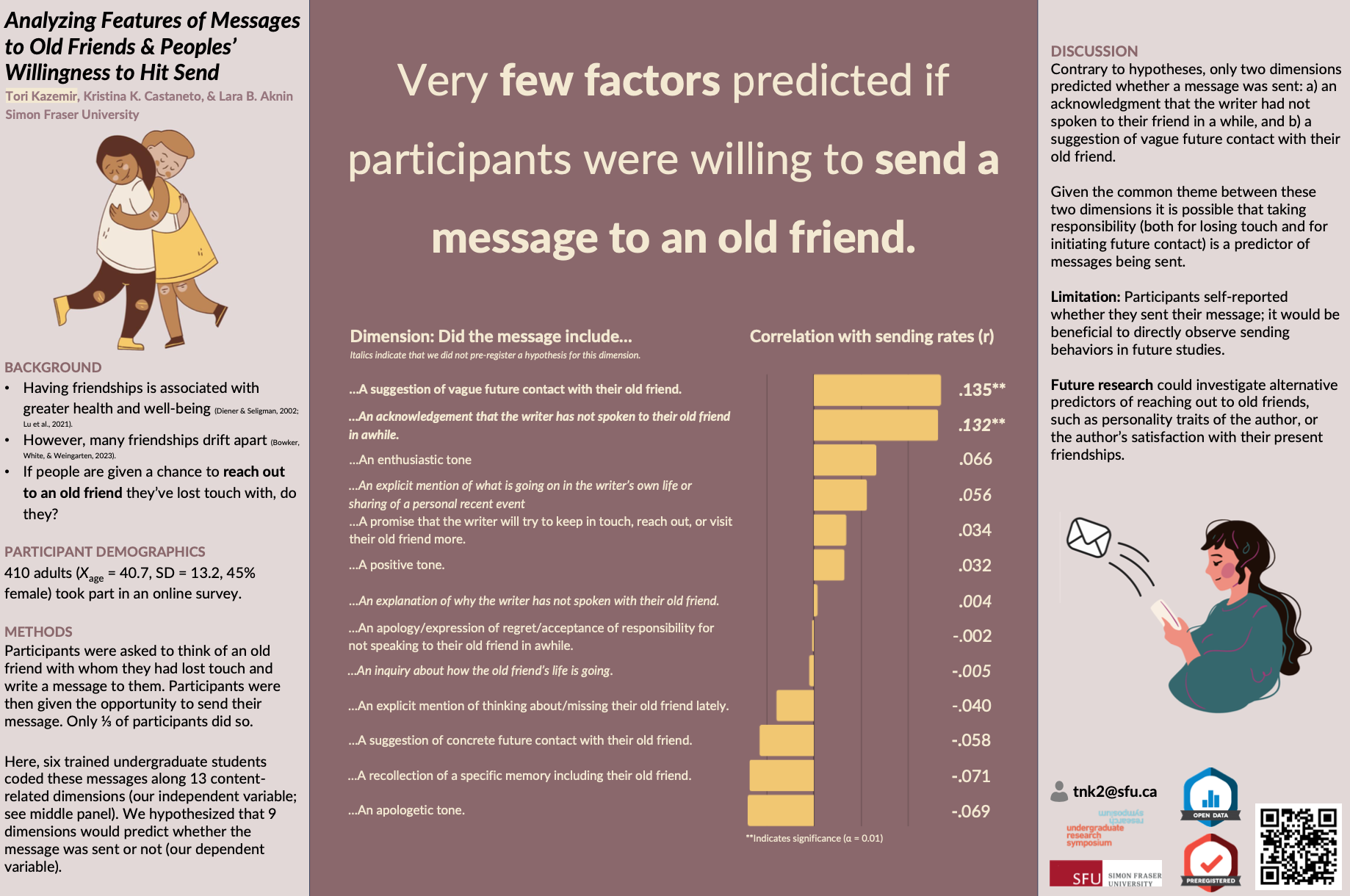Analyzing Features of Messages to Old Friends & Peoples’ Willingness to Hit Send
Main Article Content
Abstract
Friendship consistently correlates with happiness, and prioritizing one’s friendships has been associated with numerous components of health and well-being (Demir, Cuisinier, & Khoury, 2015; Lu et al., 2021; Taniguchi, 2014). However, people often lose touch with individuals they once called friends (Avalos, 2023; Bowker, White, & Weingarten, 2023). If people are given a chance to reach out to an old friend, do they? What would they say? To examine this question, 410 participants recruited as part of a larger study were asked to think of an old friend or person they care about with whom they had lost touch, and write a “reaching out” message to them. Participants were then given one minute to send their message to their old friend. Approximately one third of participants did so. Wondering if it is possible to predict which notes would be sent, we had six trained undergraduate students code the 410 messages along 14 content-related dimensions (e.g. did the author mention missing their friend, did the author apologize for losing touch). Contrary to most of our pre-registered hypotheses, only two dimensions significantly predicted whether the message was sent: messages in which the author acknowledged they had not spoken to their old friend in a while, and messages in which the author suggested vague future contact with their old friend. Although few coding dimensions predicted which messages were sent, it does seem that taking responsibility (both for losing touch and for initiating future contact) may be a predictor of messages being sent.
Faculty Supervior: Lara B. Aknin, Department of Psychology, Simon Fraser University
Research Team Member: Kristina K. Castaneto, Department of Psychology, Simon Fraser University
Article Details

This work is licensed under a Creative Commons Attribution-NonCommercial-NoDerivatives 4.0 International License.
References
Avalos, B. (2023). Exploring relational dissolution behaviors within friendships (dissertation). KEEP Theses and Dissertations. Retrieved February 13, 2024, from https://keep.lib.asu.edu/items/187750.
Bowker, J. C., White, H. I., & Weingarten, J. P. (2023). Exploratory study of best friendship dissolution characteristics and psychological difficulties during early adolescence. Infant and Child Development, 32(4). https://doi.org/10.1002/icd.2428
Demir, M., Cuisinier, F., & Khoury, B. (2015). Friendship, needs satisfaction, and happiness among college students in France and Lebanon. Friendship and Happiness, 291–304. https://doi.org/10.1007/978-94-017-9603-3_17
Lu, P., Oh, J., Leahy, K. E., & Chopik, W. J. (2021). Friendship importance around the world: Links to cultural factors, health, and well-being. Frontiers in Psychology, 11. https://doi.org/10.3389/fpsyg.2020.570839
Taniguchi, H. (2014). Interpersonal mattering in friendship as a predictor of happiness in Japan: The case of tokyoites. Journal of Happiness Studies, 16(6), 1475–1491. https://doi.org/10.1007/s10902-014-9570-z

